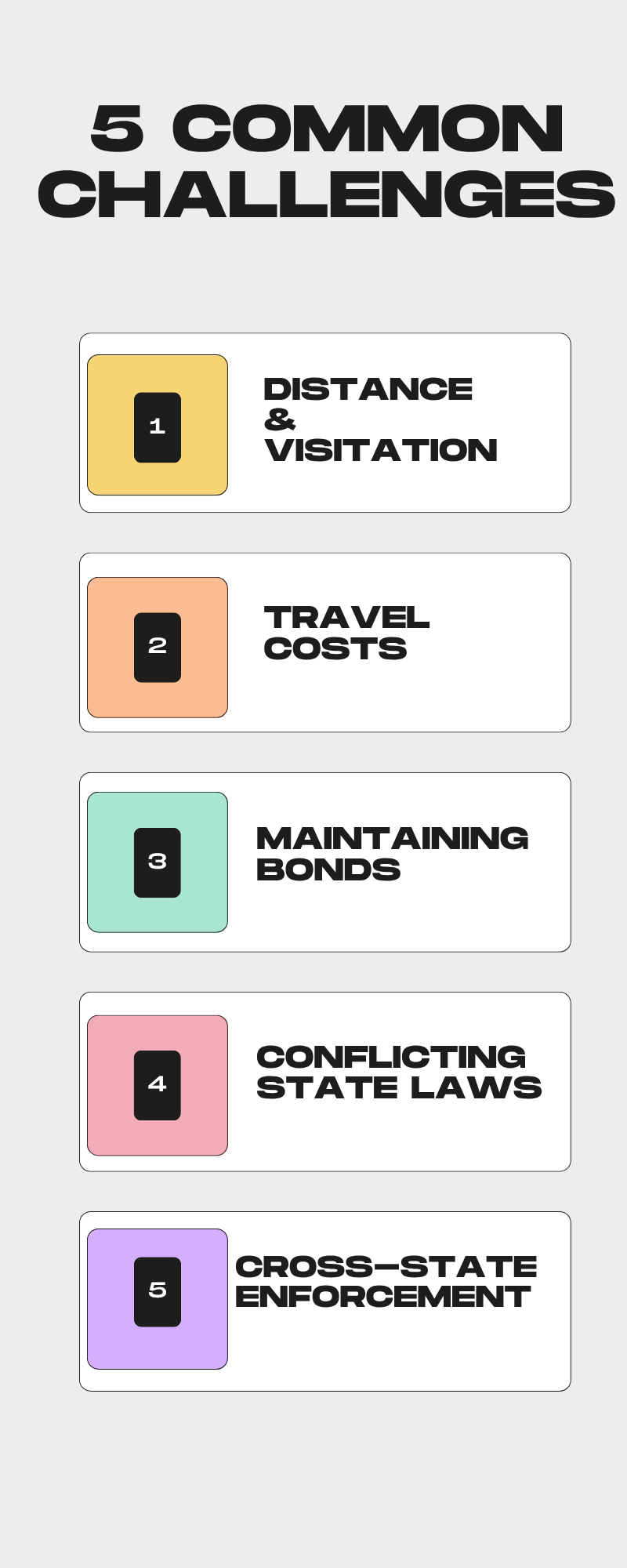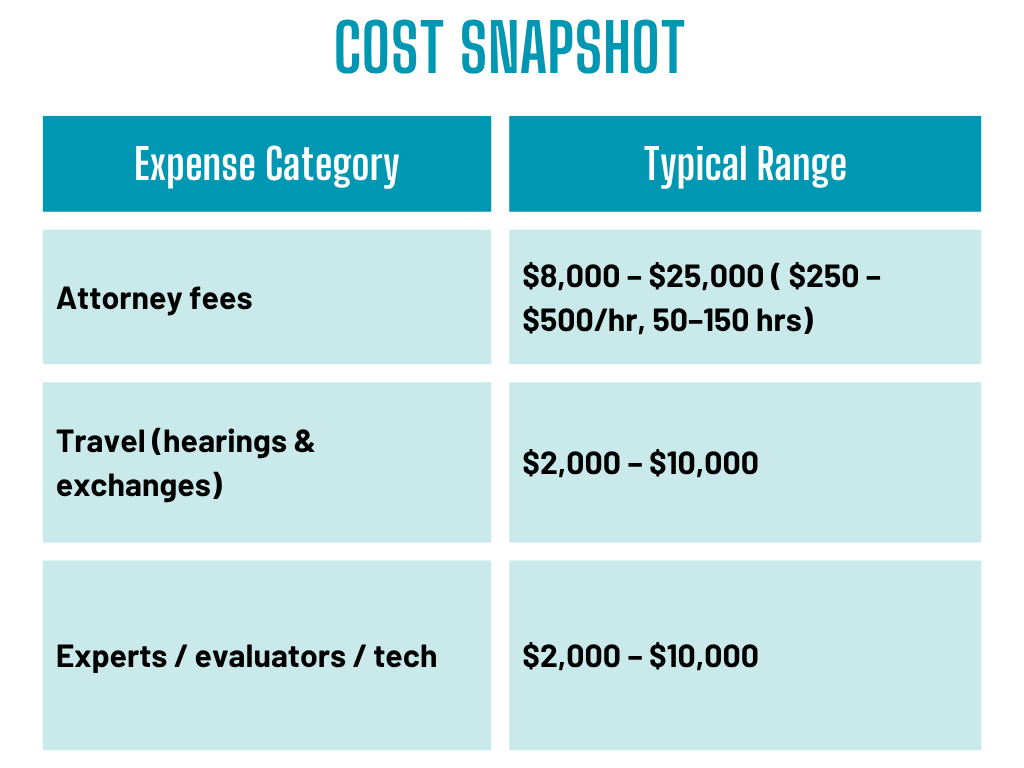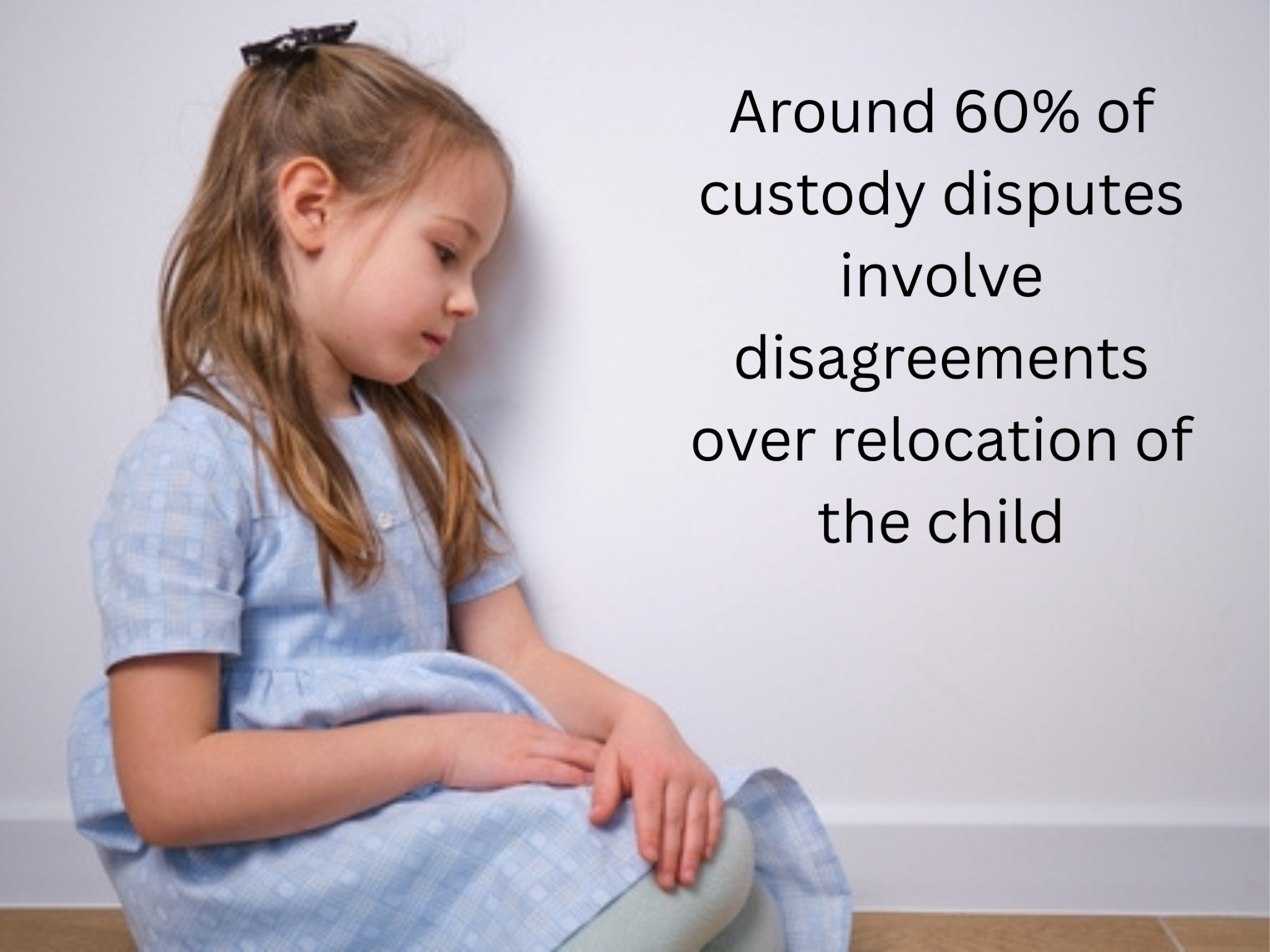As a experienced family law attorney with over 20 years of experience at Warren & Migliaccio, I have helped hundreds of Texan parents through interstate custody battles. These situations can be complex, illustrated by Sarah’s story—a single mother who called me wanting to know if her husband could fight for custody from another state.

“Chris, the kids were settling into their new life without their father around. He moved to California, has this great new job, and can send us plenty of money,” Sarah began.
“That sounds great. But what’s the catch?” I asked.
“Now he wants custody. He says with his new job, he can give them a much better life—private school and all. And he says the lifestyle is much healthier out there. Can he make a case?”
“Sarah, he can always make a case. The question is, if he does fight for them—what can you do to keep them here in Texas?” I advised her.
“Okay, well, let’s say he goes ahead and fights to have the kids go live with him full time in California, then what. You know, he’s so proud of all this money he’s making and thinks it’s the most important thing.”
“The law doesn’t necessarily agree with him—and that’s not just in Texas. In general, the law leans toward what’s in the best interests of the child.”
“Isn’t staying home—supplying them with stability—isn’t that what’s in their best interest?” she asked.
“You’re onto something, Sarah. Please allow me to go over some information about what happens when a parent fights for custody from another state. Then we can apply what we find out to your situation.”
“Great, I’m all ears.”
Stories like Sarah’s highlight the legal, emotional, and logistical challenges you might face. This guide will help you understand and overcome these hurdles.
Interstate child custody issues are often complicated because different states have different laws and procedures. Parents must fight for custody across state lines while protecting their children’s best interests.
Above all, the welfare of children should be prioritized in all child custody cases, with the child’s welfare as the primary concern in every custody decision.
Interstate Custody Law at a Glance

Why the UCCJEA Matters
The Uniform Child Custody Jurisdiction and Enforcement Act (UCCJEA)—adopted in Texas as Family Code § 152—prevents “court shopping,” enforces orders across state lines, and mandates cooperation among judges.
The statute’s core principle is “home-state” jurisdiction, which means identifying the child’s home state is crucial for determining which family court has authority over custody cases. It also provides rules and regulations to help parents understand their rights in interstate child custody disputes. The child’s best interests are the most important consideration in determining custody and jurisdiction according to the UCCJEA.
Home-State Tests:
For Children 6 months and over: Lived with a parent in one state for at least six months immediately before the legal proceeding to establish the child’s home state.
For Children under 6 months: Lived in that state since birth.
Temporary absences—vacations, summer visits, deployments—still count if the child’s life (school, doctors, friends) remains anchored there.
Four-Step Jurisdiction Priority
Before the state’s court can proceed with an initial custody determination, it must first establish proper jurisdiction under the UCCJEA.
- Home State – Texas is (or was, within six months) the home state and one parent still lives here.
- Significant Connection – No home state, yet the minor child and a parent maintain strong Texas ties and substantial evidence exists here.
- More Appropriate Forum – Another eligible state declines jurisdiction in favor of Texas, often because it determines it is an inconvenient forum and that Texas is a more convenient forum for the case.
- Default – No state satisfies the above.
Case in point: We recently helped a mother whose ex-husband moved their three children from North Dallas to Tulsa without permission. He said the move was for better job opportunities. After just four months, he filed for custody in Oklahoma, hoping to start a new child custody case there.
We acted quickly and gathered strong evidence, including:
- The children’s enrollment in Plano ISD for five years
- Their medical care records from Children’s Health
- Proof that their bedrooms were still set up in their mother’s home in Richardson
- Letters from their best friends asking for the children to return to Texas
Because we filed within the important six-month window and submitted 47 pages of documents, we worked with lawyers in Oklahoma to challenge the claim of new jurisdiction.

The Oklahoma court agreed with us. Four months was not enough to erase five years of Texas life. The children returned to Dallas with their mother. The court set a possession schedule that considered the father’s work but put the children’s stability first.
This case shows how timing and good documentation can stop even bold moves to change custody.
For a detailed accounting of an actual case from the Texas Court of Appeals please see In re S.L.P. (123 S.W.3d 685) – vLex United States.
Roadmap for Parents Living Out Of State
1. Prove Texas Jurisdiction
Collect:
- School records & attendance history
- Medical and vaccination files
- Lease, mortgage, or utility statements
- Affidavits from teachers, coaches, or doctors (these affidavits may also be provided by a person acting as a parent or guardian in the child’s life)
2. File the Correct Packets
- Original SAPCR Petition (Suit Affecting Parent-Child Relationship) – It is important to complete all required paperwork accurately to avoid delays.
- UCCJEA Affidavit (5-year residence history)
- Out-of-State Party Declaration
3. Appear Remotely
Under Texas Rules 21d & 500.10, file a Motion to Appear Remotely—most judges approve Zoom or Teams for out-of-state parties.
4. Serve Properly Across State Lines
Options include sheriff/constable service, licensed process servers, certified mail, or—with court approval—electronic/social-media service.
Special Cross-State Scenarios
Registering & Modifying Out-of-State Orders
- Submit certified copies plus a sworn statement that the order is unmodified (Tx. Fam. Code § 152.305). Any modification must be based on the original order and follow the legal process for changing it.
- Texas may enforce it immediately.
- To modify, the original state must relinquish jurisdiction or no longer have any parent/child residents.
Temporary Emergency Orders
Texas courts may exercise temporary emergency jurisdiction and issue a protective order within hours if a child present here faces urgent concerns such as abandonment, abuse, neglect, or imminent harm (Tx. Fam. Code § 152.204).
Abuse is a common reason for courts to issue emergency orders. These orders last until the true home state acts. Temporary emergency jurisdiction allows courts in states other than the child’s home state to take immediate action to protect the child. A temporary absence from the home state does not affect the court’s ability to issue emergency orders if the child’s primary residence remains elsewhere.
Related Guide: How to File for Emergency Custody in Texas
Military Protections
The Servicemembers Civil Relief Act and Texas Chapter 153, Subchapter L provide:
- Automatic 90-day stays during deployment
- Remote testimony rights
- Prohibition on using deployment alone to alter custody
- Ability to name temporary caregivers without proving a “material change”

Common Challenges & Practical Fixes
1. Distance & Visitation:
Key facts: Standard long-distance plan (≥ 100 mi): one weekend/month, full spring break, 30-42 summer days, alternating holidays. Preserving visitation rights is crucial—ensure any court order regarding visitation is strictly followed after relocation.
Practical Tips: Mark dates early; arrange weekly video calls; use shared calendars; confirm all arrangements comply with the court order to protect visitation rights.
2. Travel Costs:
Key facts: Courts weigh who moved, incomes, child’s best interests.
Practical Tips: Track every receipt; ask the court to allocate costs or adjust child support.
3. Maintaining Bonds:
Key facts: Physical distance strains relationships.
Practical Tips: Read the same books, play online games, send video clips, attend school events virtually.
4. Conflicting State Laws:
Key facts: UCCJEA unifies jurisdiction, but procedural rules differ.
Practical Tips: Consider co-counsel in the other state for enforcement or emergency filings.
5. Cross-State Enforcement:
Key facts: Registration in the other state is required.
Practical Tips: File contempt swiftly; request fines, makeup time, or modification if violations persist.
 Tip: If the relocating parent caused the extra distance, courts often shift more travel costs to them. Additionally, a parent usually needs court approval to move a child to another state if there is a custody order in place.
Tip: If the relocating parent caused the extra distance, courts often shift more travel costs to them. Additionally, a parent usually needs court approval to move a child to another state if there is a custody order in place.
Protecting Your Parental Rights—Checklist
- Document Everything – Calls, texts, school portals, medical updates, travel invoices.
- Stay Involved – Request report cards, speak with teachers/doctors, join extracurricular decisions.
- Know Your Rights – Access to records, makeup visitation, contempt remedies, modification standards.
- Show Good Faith – Encourage the child’s relationship with the other parent; courts reward cooperation.
- Present a Plan – Outline reliable visitation logistics, virtual-contact schedules, and support networks in Texas.
- Maintain Residency – Be aware that moving out of state or failing to maintain residency could cause the original court to lose jurisdiction over your custody case. Always consult with a legal professional before relocating.
 Source: Custody Battle Statistics Statistics: Market Data Report 2025
Source: Custody Battle Statistics Statistics: Market Data Report 2025
Frequently Asked Questions
Jurisdiction & UCCJEA
What is the UCCJEA 6-month rule and why does it matter?
The UCCJEA sets your child’s “home state” as the place where the child and parent have lived together in the same state for at least six straight months before filing, giving that state first-priority jurisdiction.
In cases where a child has no home state, courts assess significant connections to determine jurisdiction based on the child’s ties to a state.
- Temporary absences (vacations, summer visits) still count.
- Infants: home state is where they’ve lived since birth.
- If no home state exists, courts examine “significant connections” such as school, health care, and community ties.
Can I file for custody in Texas if my child lives elsewhere now?
Yes. Texas can keep or gain jurisdiction when:
- It was the home state within the past six months and you still reside in Texas.
- No other state qualifies and Texas has strong evidence about the child.
The UCCJEA governs custody cases when parents and children are in different states.
Practical steps:
- File a SAPCR petition + UCCJEA affidavit.
- Attach school, medical, and housing records proving Texas ties.
- Virtual court appearances are allowed under Texas Rules of Civil Procedure.
Emergency Custody Orders
How do emergency custody orders work across state lines?
Any state may issue a temporary emergency order within 24–72 hours if a child present there faces abandonment or immediate danger.
The order lasts 30–90 days while the home-state court takes over; the home-state court may decline jurisdiction if another state is better suited.
Required proof: police or CPS reports, medical records, sworn affidavits.
The issuing court must alert the home-state court within 24 hours.
Costs & Travel
What does an interstate custody case typically cost?
Most cases run $8,000–$25,000 in legal fees, with higher totals when jurisdiction is contested or experts are needed.
Attorney rates: $250–$500/hour (50–150 hours common).
Travel: $2,000–$10,000 for court hearings and exchanges.
Extras: custody evaluators, filing fees, virtual-hearing tech.
Who pays travel expenses for long-distance visitation?
Judges split costs based on:
- Who moved.
- Each parent’s income.
- The child’s best interests—often 50/50 or 75–100% to the relocating parent.
Typical travel arrangements:
- 100–300 miles: share driving costs.
- 300–1,000 miles: mix of flights/drive; prorated support credits.
- 1,000+ miles: flying; detailed cost-sharing orders with annual true-ups.
Visitation Schedules
What visitation schedule do Texas courts use when parents live 100+ miles apart?
Standard long-distance schedules add time to offset travel burdens.
Typical schedules include:
- One weekend each month (Thu–Mon).
- Entire spring break every year.
- 30–42 summer days (often two blocks).
- Alternating Thanksgiving and half-Christmas breaks.
- Weekly video calls and virtual school-event access.
Enforcement & Modification
How do I enforce a Texas custody order in another state?
Register the certified order in the other state.
File a contempt motion or request law-enforcement help if violations continue.
Requirements:
- Registration: certified order + sworn statement it’s unmodified.
- Notice served on the other parent.
- Remedies: fines, makeup time, attorney-fee awards, possible custody modification.
Can Texas modify an existing out-of-state custody order?
Texas may modify once:
- The order is registered and the original state relinquishes jurisdiction or no parent/child lives there.
Steps to modify:
- Show a substantial change (relocation, new child needs, safety issues).
- File motion to modify with supporting evidence and proposed parenting plan.
- Hearings typically conclude within 3–6 months after filing.
Special Situations
How does military deployment affect interstate custody rights?
Deployment alone cannot justify changing custody. Federal and Texas laws give service members extra protection.
Protections include:
- Automatic 90-day stay if deployment hinders participation.
- Remote testimony by video is guaranteed.
- Temporary caregiver designations don’t require showing a “material change.”
- Courts can’t use deployment as the sole reason to reduce custody.
Do I need attorneys in both states for an interstate case?
One lawyer can handle most legal matters.
Hiring local counsel in the other state is wise when:
- Enforcement is needed.
- Emergency hearings are required.
- Jurisdiction is contested.
Local counsel provides immediate filings and state-specific procedure expertise.
Dual representation adds $3,000–$10,000 but reduces travel costs and delays. Many firms coordinate through nationwide networks to streamline strategy.
Taking the Next Legal Steps

Interstate custody cases are among family law’s toughest challenges—but they’re winnable with strategic evidence, procedural precision, and consistent parenting commitment. At Warren & Migliaccio, we blend legal skill with real-world empathy to protect parents who refused to let state lines disrupt family bonds.
Don’t let distance decide your child’s future. Let’s craft a strategy that defends your rights and secures lasting stability for your family—wherever you call home.
How Will Sarah Try to Keep Her Children in Texas?
“Chris, it seems like there is a lot he can do to fight to get the kids.”
“Yes, but there’s a lot you can do too to keep them. So let’s get prepared,” I told her.
“You know, I really don’t think it’s healthy for the kids to be flying back and forth all the time, but I’d be okay with them going to live with him for one month during the summer.”
“Thanks for clarifying. Maybe we can get him to compromise on visitation. But let’s plan as if he really wants the kids to live with him most of the time. What’s your best argument for them staying?”
“Chris, this is their home. They’ve lived right here in Texas since they were born. Their whole lives are here, other than their father. Their school, their friends, their doctors—everything is so stable here.”
“That’s the fundamental issue. If we can prove that Texas is their home state, the courts should be on our side. Now I just need to ask, he’s not going to accuse you of being an unfit mother, is he? No abuse, no drug problems or anything?”
“No, nothing like that,” she replied.
“And you have a stable job and a nice home, right?”
“Yes, all of that is in place.”
“Good, because we don’t want to give him another argument about why he wants to move the kids. But it sounds like you can feel safe that you’re providing the kids with a stable home here in Texas. That should ward off any legiatmate attempts he might make to move the kids to California.”
“That’s great, Chris. But can you simplify the plan for me, step by step?” she asked.
“Sure. First, we’ll establish Texas as their home state. Second, we’ll emphasize stability and continuity in their lives. Third, we’ll propose a reasonable compromise about visitation. How does that sound?”
“I like it. Thank you, Chris. I really appreciate your guidance.”
“You’re welcome. We’re in good shape, but please, keep me posted about any moves he makes—any calls, or threats, and especially legal actions.”
“I will, Chris. I will.”

Schedule a Consultation With Our Firm to Learn About Fighting for Custody from Another State
Wondering what happens if one parent fights for custody while living in another state can be stressful and challenging, but you do not have to face it alone. Our team of experienced Dallas family attorneys is ready to provide you with the guidance, support, and legal advocacy you need during these challenging times.
Whether you are wondering about out of state custody, or navigating other divorce related issues, we are here to help you every step of the way by providing the best legal advice. We welcome you to schedule a consultation to discuss your situation and case objectives. We can answer your legal questions and discuss how we can help you move forward. Call our law office at (888) 584-9614 or contact us online to schedule your consultation.

